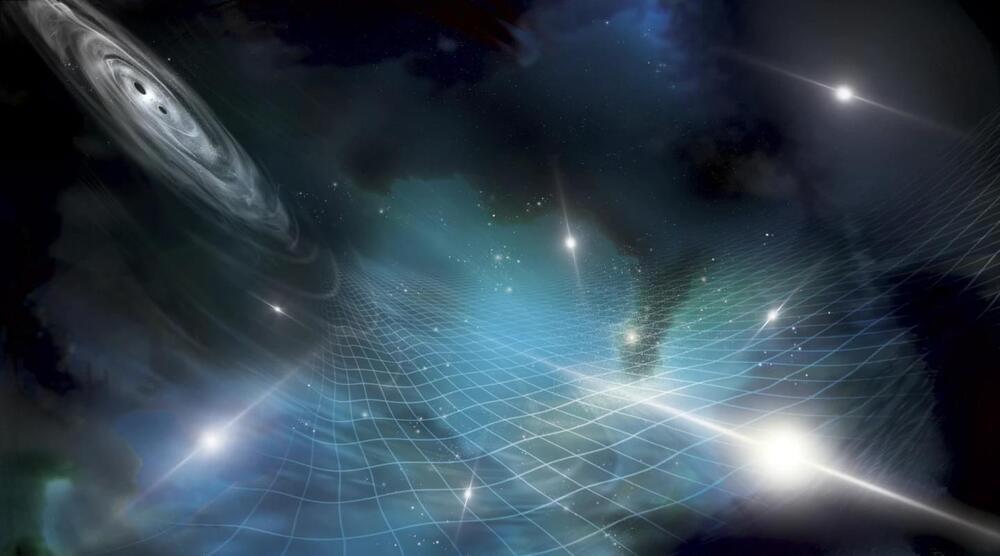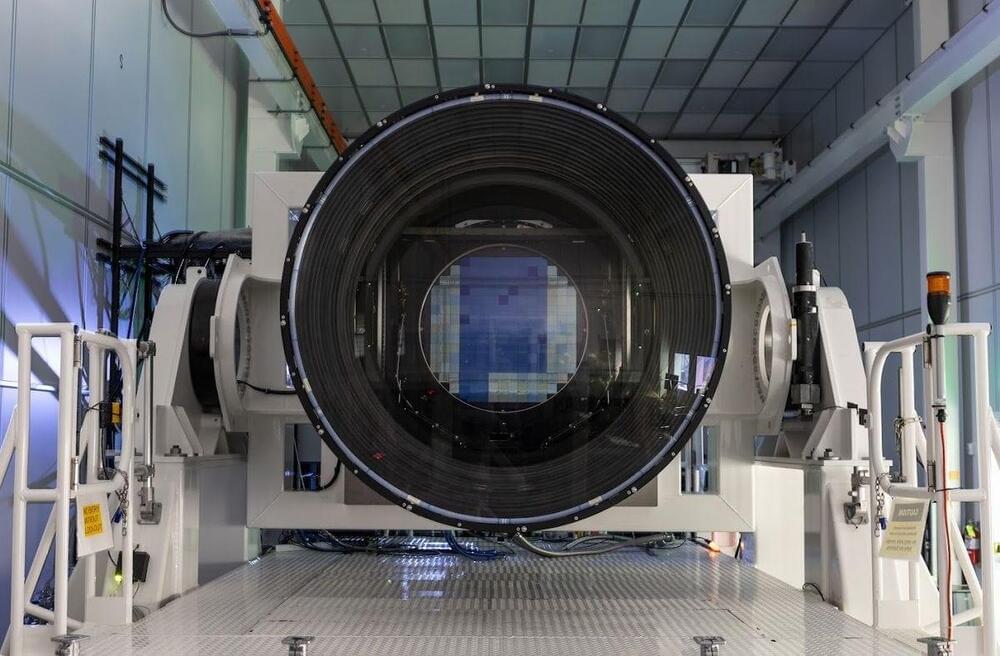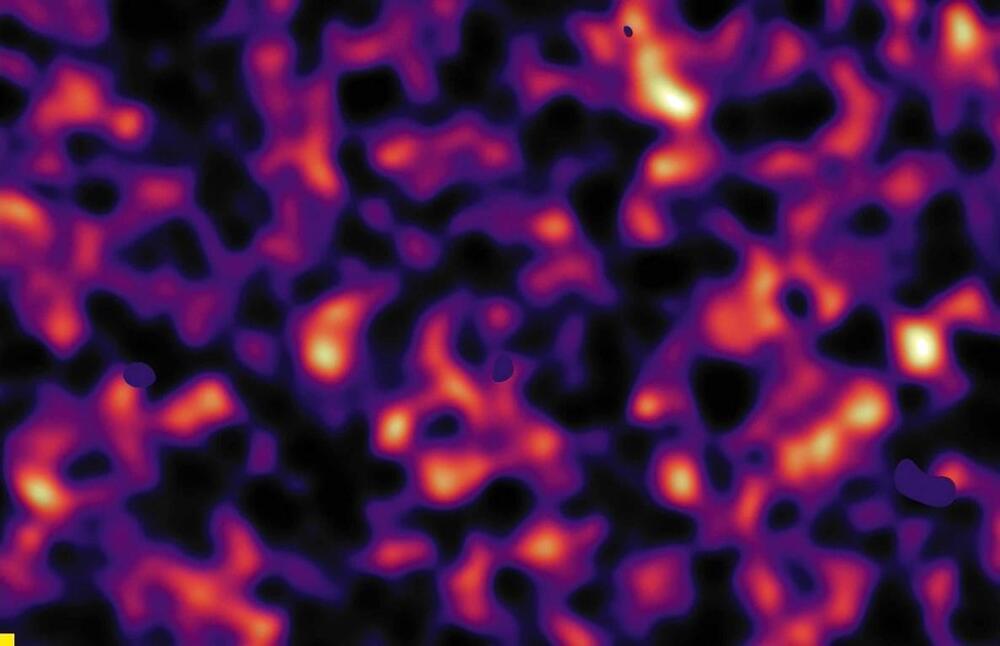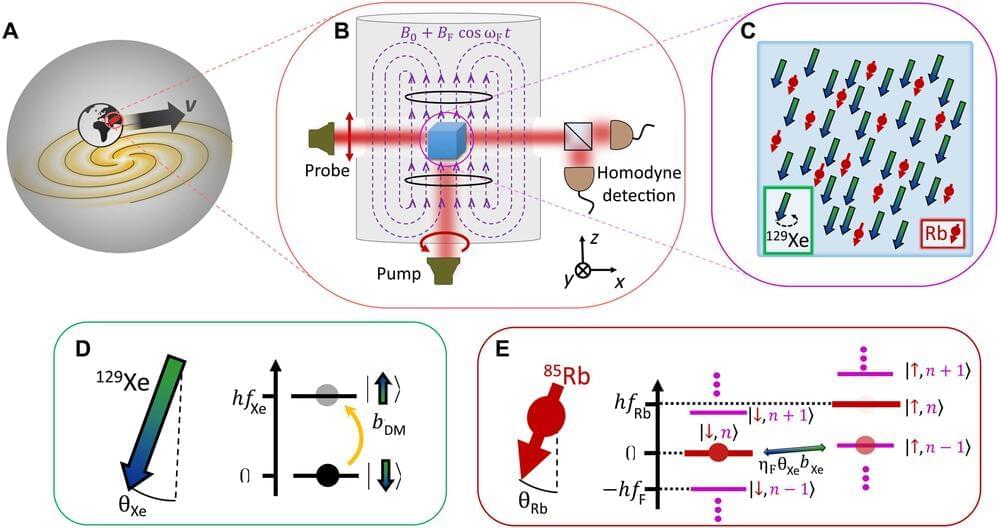Black hole singularities defy the laws of physics. New research presents a bold solution to this puzzle: Black holes may actually be a theoretical type of star called a ‘gravastar,’ filled with universe-expanding dark energy.



Leftover light from the young universe has a major flaw, and we don’t know how to fix it. It’s the cold spot. It’s just way too big and way too cold. Astronomers aren’t sure what it is, but they mostly agree that it’s worth investigating.
The cosmic microwave background (CMB) was generated when our universe was only 380,000 years old. At the time, our cosmos was about a million times smaller than it is today and had a temperature of over 10,000 kelvins (17,500 degrees Fahrenheit, or 9,700 degrees Celsius), meaning all of the gas was plasma. As the universe expanded, it cooled, and the plasma became neutral. In the process, it released a flood of white-hot light. Over the billions of years since, that light has cooled and stretched to a temperature of around 3 kelvins (minus 454 F, or minus 270 C), putting that radiation firmly in the microwave band of the electromagnetic spectrum.

To be clear, humans are not the pinnacle of evolution. We are confronted with difficult choices and cannot sustain our current trajectory. No rational person can expect the human population to continue its parabolic growth of the last 200 years, along with an ever-increasing rate of natural resource extraction. This is socio-economically unsustainable. While space colonization might offer temporary relief, it won’t resolve the underlying issues. If we are to preserve our blue planet and ensure the survival and flourishing of our human-machine civilization, humans must merge with synthetic intelligence, transcend our biological limitations, and eventually evolve into superintelligent beings, independent of material substrates—advanced informational beings, or ‘infomorphs.’ In time, we will shed the human condition and upload humanity into a meticulously engineered inner cosmos of our own creation.
Much like the origin of the Universe, the nature of consciousness may appear to be a philosophical enigma that remains perpetually elusive within the current scientific paradigm. However, I emphasize the term “current.” These issues are not beyond the reach of alternative investigative methods, ones that the next scientific paradigm will inevitably incorporate with the arrival of Artificial Superintelligence.
The era of traditional, human-centric theoretical modeling and problem-solving—developing hypotheses, uncovering principles, and validating them through deduction, logic, and repeatable experimentation—may be nearing the end. A confluence of factors—Big Data, algorithms, and computational resources—are steering us towards a new type of discovery, one that transcends the limitations of human-like logic and decision-making— the one driven solely by AI superintelligence, nestled in quantum neo-empiricism and a fluidity of solutions. These novel scientific methodologies may encompass, but are not limited to, computing supercomplex abstractions, creating simulated realities, and manipulating matter-energy and the space-time continuum itself.
In this episode, we’ve embarked on an exciting journey into the heart of quantum cosmology, exploring Stephen Hawking’s revolutionary \.

For the first time, scientists have seen the small ripples that result from black holes’ motion, which are gently stretching and squeezing everything in the universe.
They revealed that they could “hear” low-frequency gravitational waves, which are produced by massive objects colliding and moving around in space and causing changes in the universe’s fabric.

Life is shaped by choices. The fundamental debate is whether to live life for learning or for pleasure. This weekend, my existential tension boiled down to a simple question: why am I writing my next book and my next scientific paper rather than having fun in the sun?
After some contemplation, I came up with the realization that learning is pleasure. But there is another benefit to writing. Most people will live in the future and I wish to communicate my thoughts to those who will be born long after I am gone. I weigh my priorities in life based on the number of people who might benefit from my actions.
There are currently 8.1 billion people on Earth, about 7% of the total number of humans who have ever lived since the Big Bang, 117 billion. Based on the star count from the Gaia sky survey, the number of stars in the Milky-Way galaxy is comparable to this total value within a factor of a few. This implies that for the foreseeable future, Milky-Way stars could be named after each person who ever lived on Earth.

The first anomaly concerns the speed at which the Universe is expanding. Astronomers determine this in two ways and herein lies the problem: the two methods yield different values.
The obvious method is to observe galaxies (the basic building blocks of the Universe) in the nearby Universe and measure how fast they’re moving away from us. They’re scattering like pieces of cosmic shrapnel in the aftermath of the Big Bang, the titanic explosion in which the Universe was born 13.82 billion years ago.

A team of researchers affiliated with several institutions in Israel has used a Floquet quantum detector to constrain axion-like dark matter, hoping to reduce its parameter space. In their paper published in the journal Science Advances, the group describes their approach to constraining the theoretical dark matter particle as a means to learning more about its properties.
Despite several years of effort by physicists around the world, dark matter remains a mystery. Most physicists agree that it exists, but thus far, no one has been able to prove it. One promising theory involving the existence of interacting massive particles has begun to lose its luster, and some teams are looking for something else. In this new effort, the researchers seek axions, or axion-like particles. Such dark matter particles have been theorized to be zero-spin and able to possess any number of combinations of mass and interaction strength. The team sought to constrain the features of axion-like particles to reduce the number of possibilities of their existence and thereby increase the chances of proving their existence.
The researchers used a shielded glass cell filled with rubidium-85 and xenon-129 atoms. They fired two lasers at the cell—one to polarize the rubidium atoms’ electronic spin and the xenon’s nuclear spin, and the other to measure spin changes. The experiment was based on the idea that the oscillating field of the axions would impact on the xenon’s spin when they are close in proximity. The researchers then applied a magnetic field to the cell as a means of blocking the spin of the xenon to within a narrow range of frequencies, allowing them to scan the possible oscillation frequencies that correspond to the range of the axion-like particles. Under this scenario, the Floquet field is theorized to have a frequency roughly equal to the difference between the nuclear magnetic resonance (NMR) and the electron paramagnetic resonance, and their experiment closes that gap.
Quintessence.
Dive into the cosmic mystery of dark energy with the groundbreaking findings from DESI! Explore how the largest-ever 3D map of the universe challenges our understanding of dark energy and hints at a dynamic cosmos. Discover what this means for the fate of the universe and how it could reshape our view of the cosmos. Join us as we unravel the secrets of the dark universe in this exciting episode!
Chapters:
00:00 Introduction.
01:25 Unveiling the Universe with DESI
03:40 Challenging the Constancy of Dark Energy.
05:54 Implications for Cosmology.
08:05 Outro.
08:29 Enjoy.
Best Telescopes for beginners:
Celestron 70mm Travel Scope.
https://amzn.to/3jBi3yY
Celestron 114LCM Computerized Newtonian Telescope.

Prof Roberto Maiolino, an astrophysicist at the University of Cambridge, and a member of team behind the observations, said: “One problem that we have in cosmology is explaining how these black holes manage to grow so big. In the past we have always talked about gobbling matter very quickly or being born big. Another possibility is that they grow very fast by merging.”
Until now it was not clear whether the merging of galaxies – which is known to have happened – would also result in the black holes at the centres morphing into a single cosmic sinkhole. Recent models have suggested that one of them would be kicked out into space to become a “wandering black hole”
The latest observations use the Webb telescope’s ability to get to the far reaches of the cosmos and so have provided the first glimpse of galactic mergers in the distant past.